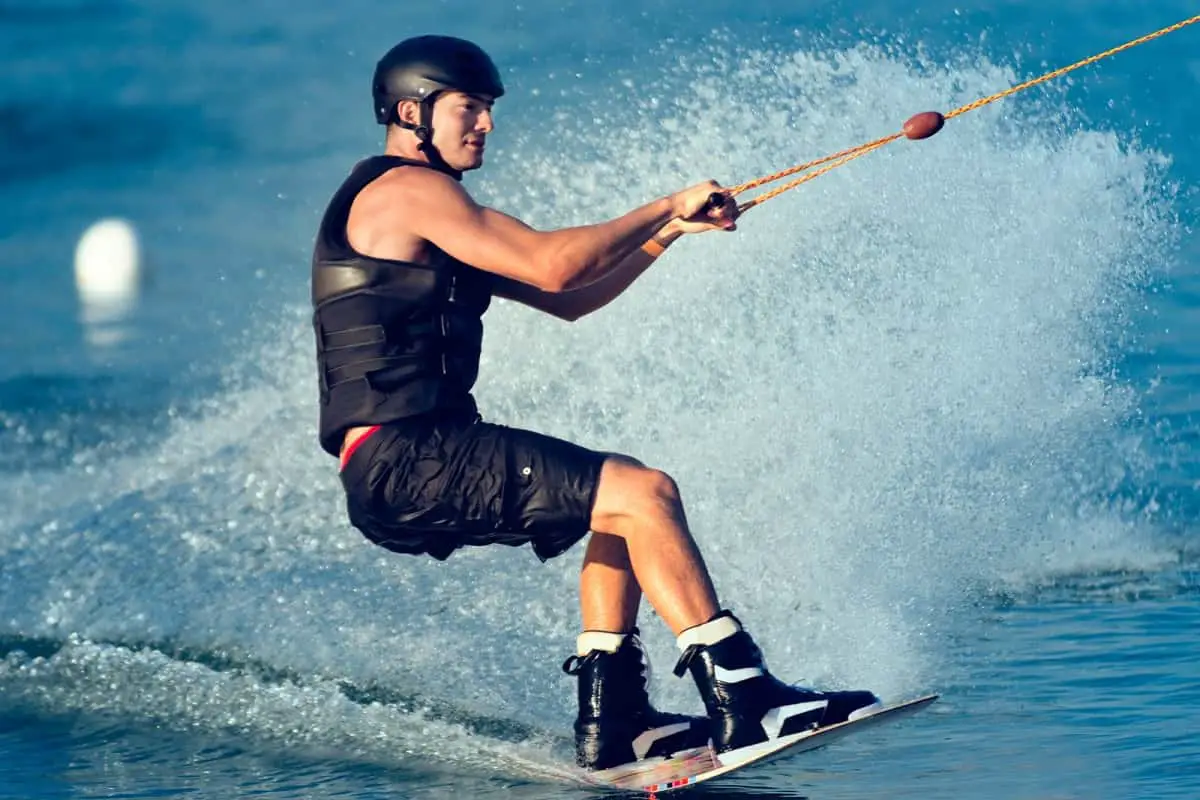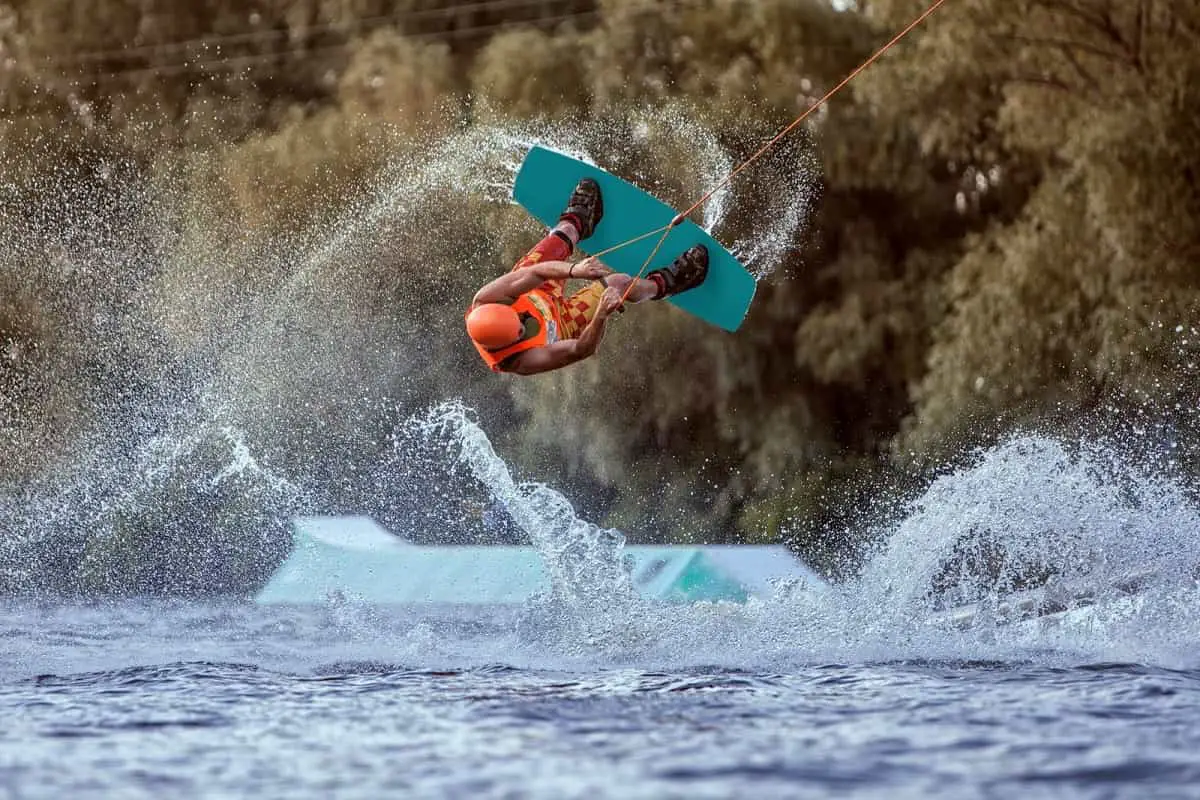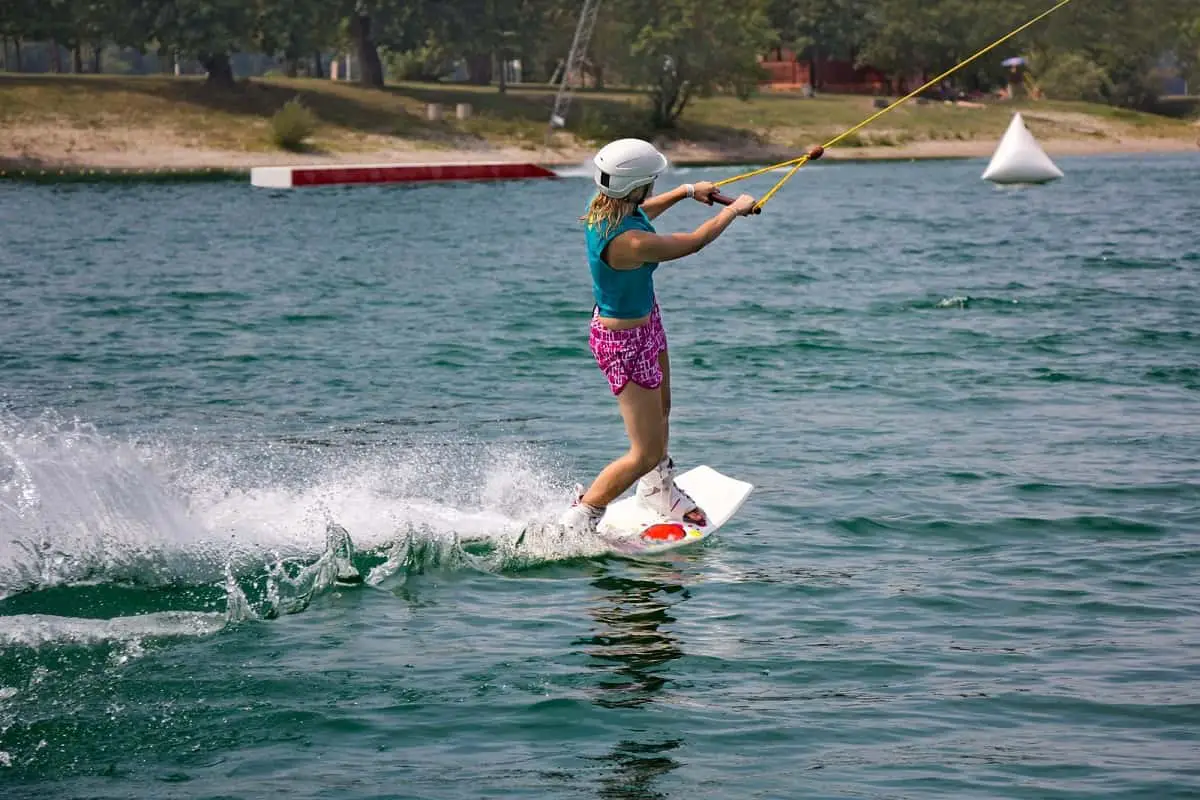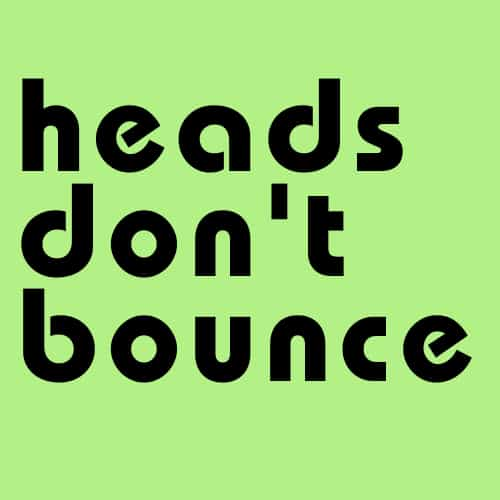Concussion From Wakeboarding
Wakeboarding is a fantastic and exhilarating sport in which you stand on a shortboard and ride the wake of the boat that’s pulling you. However, as much fun as it is, concussions are a real danger, especially considering the speed and randomness in which things may go wrong.
There are a lot of things that can go wrong when wakeboarding. The depth of the water changes rapidly as you move across it, and you don’t stop moving just because you come off the board. Getting a concussion from wakeboarding is not only a danger, but it’s also not an uncommon one either.
Watersports don’t get the kind of recognition (when it comes to concussions) that you hear about in the NFL and NCAA football. However, it’s a predominant theme in watersports, especially in water polo, where, as many as one in three participants will have a concussion at some point.
Page Content

Disclosure: As an Avantlink and Amazon Associate, we earn from qualifying purchases. Disclosure Statement.
How Does Water React At Speed?
Newton’s Third Law is a doozy, and it basically states—in this scenario—that when you exert a force against water (in this case, your flailing, helpless body), the water exerts a force back on you.
Math can be fun when you’re forced into adulting and the math says that when your body hits the water, the impact (or force) is equal to your mass, multiplied by how fast you were going. In other words: Force = Mass x Velocity (speed).
- Water does not like to compress quickly
- Your body compresses much faster
- You can go from high speed to stationary very quickly
Water obviously has a high surface area and it also has a good degree of surface tension. The harder your body hits it, the harder the resistance will be. The next question would be: what does that have to do with wakeboarding concussion?
A concussion isn’t a crack in your skull or necessarily a bleeding brain. What defines a concussion is the neurological aftermath of your brain smacking up against the inside of your skull.
Imagine that you are driving down the road and have to slam on your brakes. Your body presses hard against the seat belt across your chest. Well, the brain sits in a pocket within your skull, not necessarily touching the inner bone of your skull.

When you strike something like water at speed, the water doesn’t compress as quickly as you do, so there’s pain, along with a sudden decrease in speed, which can send your brain careening into your skull.
This often causes a form of bruising and, in really bad cases, internal bleeding inside the skull.
This content was originally published on headsdontbounce.com. If it appears on another website, it is a violation of the copyright owned by headsdontbounce.com.
Wakeboarding Injuries
It’s not often that you see people wearing wakeboarding helmets while out, even though a water sports helmet or two would certainly be helpful.
Research by the Nationwide Children’s Hospital in Columbus, Ohio states that the most common wakeboarding injuries involve the head and face, and that wakeboarders are more likely to have a traumatic brain injury than water skiers.
Meanwhile, statistics from Canada show that concussion accounts for 11% of all wakeboarding injuries.
Of course, that’s where the EN-1385 Water Helmet Standard and certification comes into play. The importance of wearing helmets while wakeboarding can’t be understated. Will it prevent all concussions? Not likely, however, wearing a wakeboard helmet will significantly reduce the likelihood of receiving one.
IMPORTANT: How to Know Your Helmet Size

Concussion From Wakeboarding?
It’s not just the water that you have to worry about, although that’s a primary factor. The problem with wakeboarding down a river, lake, pond, or beach, is that you really don’t know the depth of the water at all times.
Flying off the wakeboard into a headlong dive could send your precious noggin into a rock at 15 + miles per hour. When you consider that, you realize that wakeboard helmets are for more than just impacting the water.
You also have to be concerned about the trajectory of the wakeboard. When you lose balance and wipe out, that thing is flying along at some serious speed, just like you. If it hits you in the head, you’ll wish you had a wakeboarding helmet while you’re counting all of those stars.
Final Thoughts
Getting a concussion from wakeboarding is not an uncommon thing; not in the least. Your personal safety, along with the safety of others around you is paramount when you’re out on the water and traveling at speed.
A wakeboard helmet will go a long way in protecting you from wakeboarding concussions or something much worse. If you strike a rock headfirst in a shallow patch of water, a concussion may be the least of your concerns.
Related Reads:

